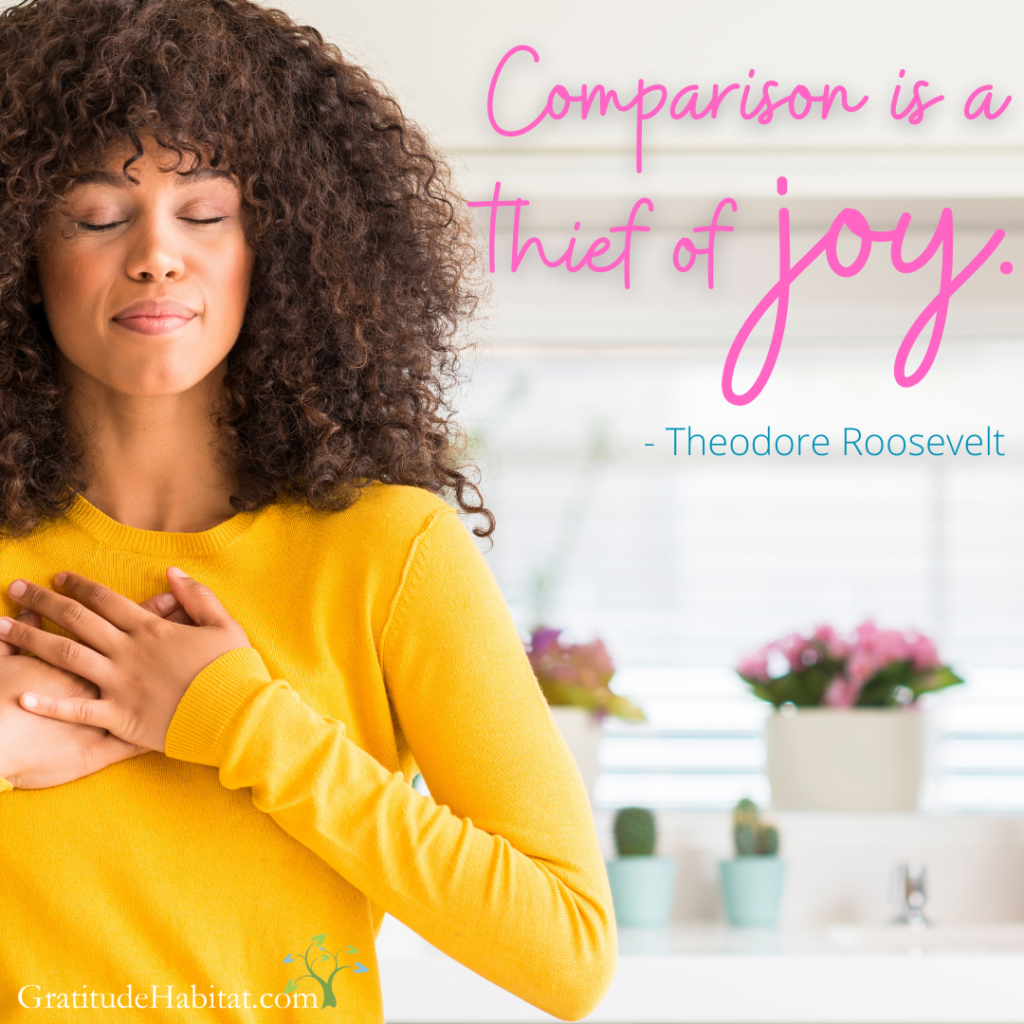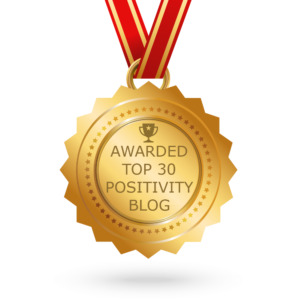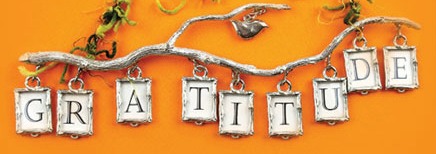Living In Gratitude: Comparison is a Thief of Joy
Comparison is the thief of joy.
-Theodore Roosevelt
Humans use social comparison to determine our social and personal worth. We do this by consciously and subconsciously continually evaluating our attractiveness, wealth, intelligence, occupation, status, success, etc., against others.
American social psychologist Leon Festinger is credited with the social comparison theory. He proposed that people constantly seek honest self-evaluations and compare themselves to others to gain a better sense of themselves and where they are in their lives.
In these situations, people typically compare themselves to someone who has at least one major characteristic they have in common. We begin applying social comparisons at a very early age to help construct our sense of identity.
There are two types of comparisons: upward and downward.
Downward social comparison occurs when people compare themselves to those who are “worse off.” Upward social comparison is when individuals compare themselves to people who are “better” off than they are.
The difference between upward and downward comparisons is how they affect self-esteem. Downward comparisons, considered defensive, offer immediate relief and comfort, while upward comparisons create a drive to improve, enhancing confidence.
Another purpose of social comparison is the need to boost our self-confidence. In this comparative “analysis,” individuals are often left feeling threatened and insecure.
This practice has become even more common with the advent of social media, promoting heightened social comparisons never before experienced.
Scrolling through posts of the homes, vacations, achievements, and perfectly curated (and always photogenic) social gatherings has been shown to cause feelings of anxiety, depression, self-doubt, low self-esteem, envy, inferiority, disconnection, FOMO, sadness, and isolation.

And, because social media use is addictive, we are compelled to scroll, like, and comment while at the same time perpetually comparing ourselves.
Author and psychologist Susan David stated, “Whether we’re feeling inferior to a high-achieving friend or superior to one who is struggling, the drive to compare damages our relationships and skews our values. The message we get from social media is one of competition and scarcity. The world starts to look like a zero-sum game. Someone else’s win becomes your loss and vice versa.”
Social comparison is part of being human; it isn’t easy to eliminate. When used sparingly to inspire and motivate, it can spur us onto great things. But when we overload ourselves constantly with comparison, it can become detrimental to our health and wellbeing. We can quickly lose our way when we focus on comparing ourselves to others.
There is only one YOU. Instead of comparing yourself to others, strive to be the best “you” the world has ever seen.
May your day be filled with gratitude and good things.







